So you just updated to macOS Ventura but noticed cracking sounds from your Mac’s speakers?
Poor sound quality on your Mac can be caused by a handful of reasons. Usually, it’s due to faulty versions of macOS.
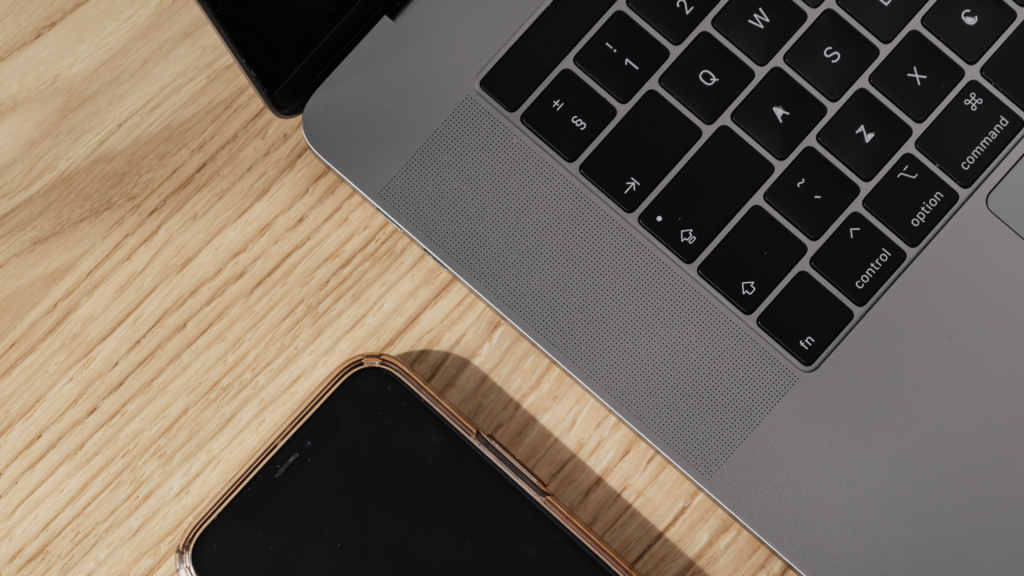
However, it can also be due to compatibility issues and improper configurations.
In this guide, we’ll show you what to do when you hear cracking sounds from your speakers on macOS Ventura.
Let’s begin!
1. Restart Your Mac.
Before anything, we suggest restarting your Mac whenever you encounter issues.
This should reload your resources, resolving any temporary errors that may have occurred on your system.
Restarting your Mac should also eliminate corrupted data from its system memory.
Follow the steps below to restart your Mac:
- Click on the Apple icon in the upper left corner of your display.
- Now, click on the Restart option.
- When prompted, click Restart again to confirm your action.
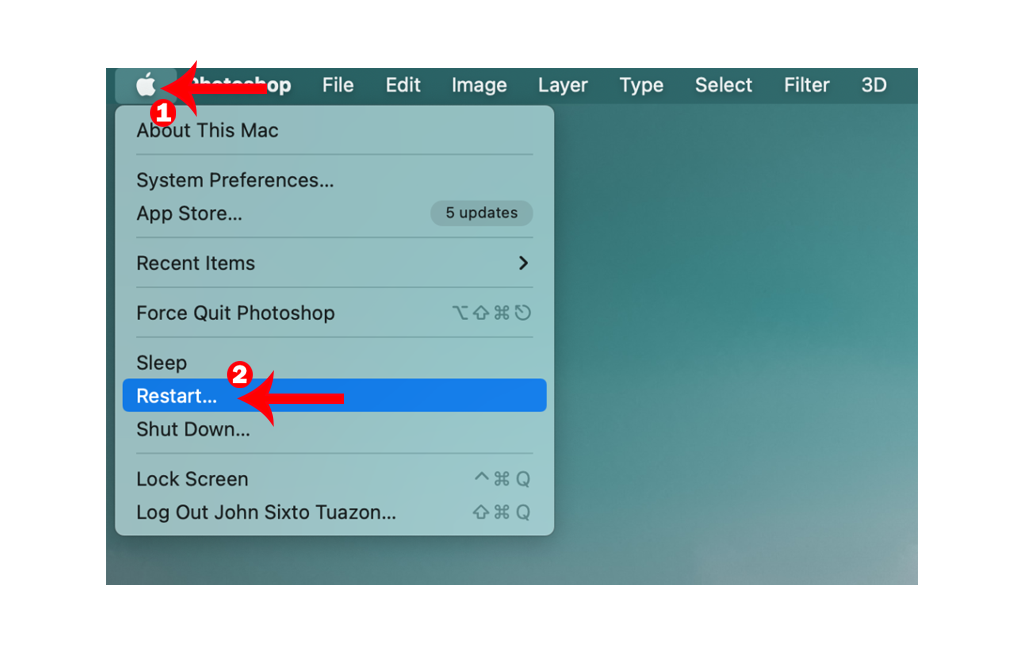
Once done, try playing audio on your Mac to check if the problem is solved.
2. Check Device Connection.
If you hear the cracking sound on your earphones or external speakers, it might be due to connectivity issues.
To rule out problems with your earphones or speakers, make sure that they are correctly connected on your Mac.
For wired audio devices:
- Disconnect the 3.5mm jack or USB connector from your Mac.
- Reconnect it after a few seconds.
If you’re using a wireless device, reconnect it by doing the following:
- Click on the Apple icon in the upper left corner of your Mac.
- Now, access System Settings.
- On the side bar, click on Bluetooth.
- Hover the cursor on your audio device and click Disconnect.
- After 30 seconds, reconnect your wireless audio device.
Try playing audio on your Mac to check if you’ll still hear cracking sounds.
3. Try Other Apps.
Some applications may not be compatible with the latest build of macOS Ventura, explaining why you encounter problems.
To confirm if the problem is isolated within a specific app, try playing sounds from other applications on your Mac.
If the issue only occurs in one app, wait for its developer to release a version that is compatible with Ventura.
Proceed to the next step if cracking sounds occur on any application.
4. Update Your Mac.
Apple continues to tweak macOS Ventura. While many problems were already resolved, this doesn’t mean that new ones won’t occur.
If you hear cracking sounds from your speakers, it’s possible that the version of macOS Ventura you’re using has a problem with sound drivers.
See the steps below to update your Mac:
- In the upper left corner of your screen, click on the Apple icon to open the Apple Menu.
- Now, click on System Settings.
- Inside settings, navigate to General > Software Update.
- If a new version was detected, follow the prompts to install the update.
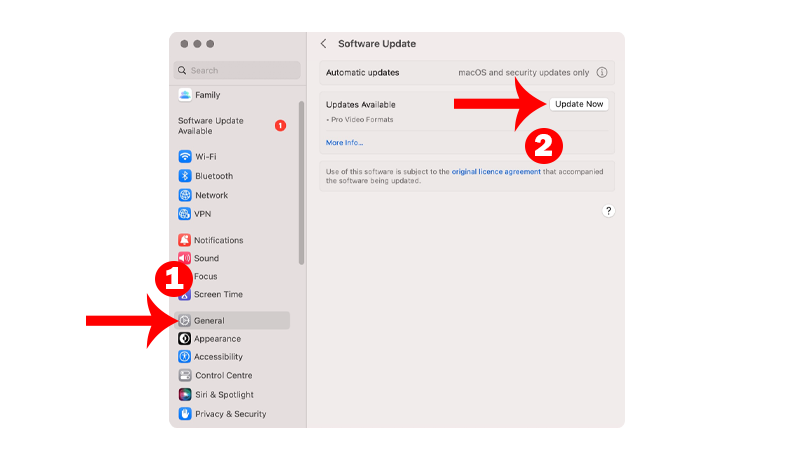
Note
- Your Mac can restart several times while installing the update.
- The update progress bar might also appear to be stuck. When this happens, don’t do anything. Software updates can take several minutes to complete.
Play some sounds afterward to check if the cracking sounds on macOS Ventura is solved.
5. Change System Sound Output Format.
The cracking sound on macOS Ventura may occur when your Mac’s audio format cannot adjust to changing frequencies.
Your Mac’s current format may not be compatible with the sound format you’re playing, which explains the unusual sounds.
To fix this, follow the steps below to change the sound output format on Ventura:
- Press Command + Space on your keyboard to open Spotlight Search.
- Look for Audio MIDI Setup and open it.
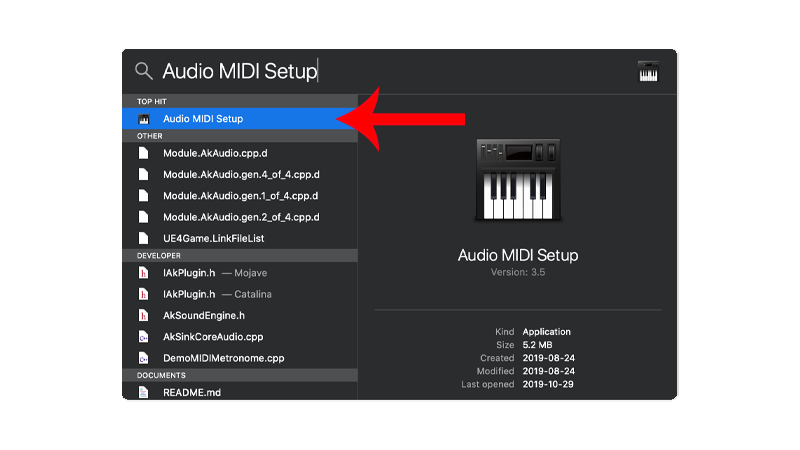
- Now, click on MacBook Pro Speakers in the side menu.
- Go to Output.
- Click on the drop-down menu next to Format.
- Choose 96,000 Hz and close Audio MIDI Setup.
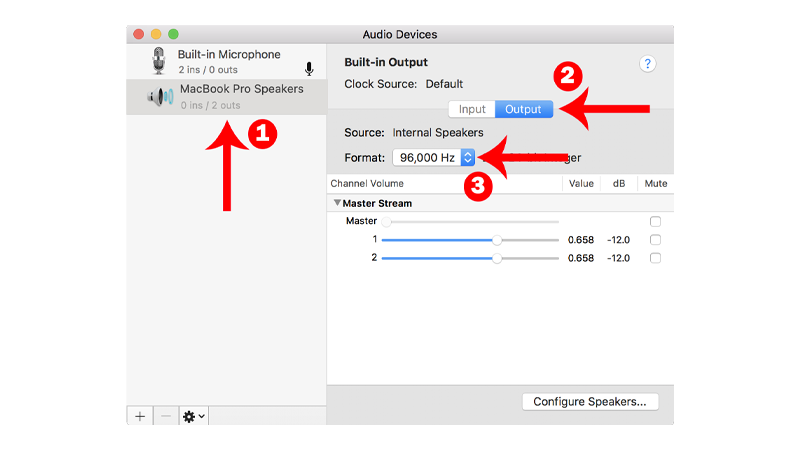
After changing the sound output format, try playing some sounds to check if the problem is solved.
6. Manage CPU Usage.
We’ve discovered that cracking sounds on Ventura are more prominent when your system is using a lot of CPU usage.
Although we can’t find any explanation for why this occurs, you can manage your CPU usage to reduce the occurrence of cracking sounds.
Here’s how you can do that:
- On your keyboard, press Command + Space to open Spotlight Search.
- Look for Activity Monitor and hit Return on your keyboard to open it.
- Now, click on the CPU tab in the upper middle part of the app.
- Click on the % CPU column to see the apps with the highest CPU usage at the top.
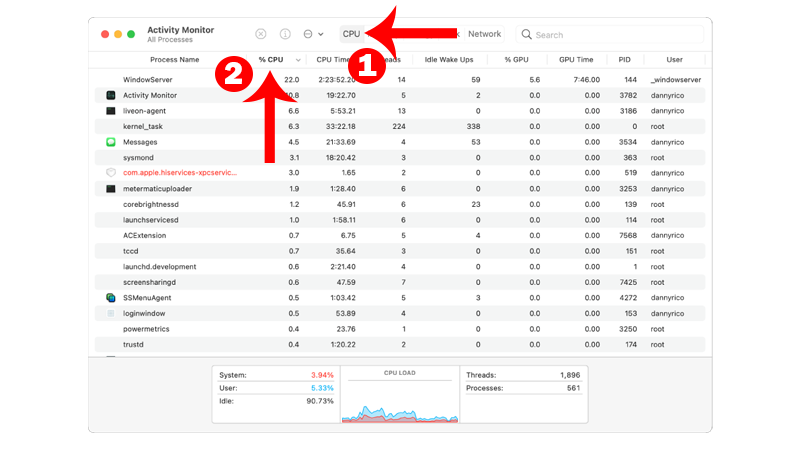
- Identify the applications you’re not using and close them.
Play a few music or videos to see if the cracking sounds were lessened.
7. Delete Corrupt Audio Files.
Preference files store the configurations and essential data of applications. If you encounter cracking sounds on your Mac, it might be due to corrupted audio preference files.
Delete the current audio preference files on your Mac to force your system to generate new ones with factory values.
Note
Some configurations may be lost when you delete preference files.
Here’s what you need to do:
- Press Command + Shift + G on your keyboard to access the Go To Folder function.
- Now, copy the path below and hit Return to open the Audio folder on your Mac.
/Library/Preferences/Audio- Find the following files inside the folder and delete them:
com.apple.audio.DeviceSettings.plist
com.apple.audio.SystemSettings.plis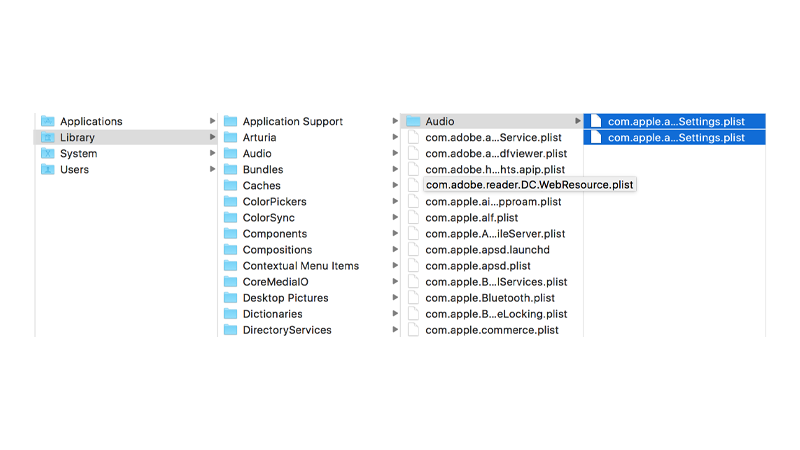
- Restart your Mac.
Check if you’ll still hear cracking sounds from your speakers on macOS Ventura.
8. Stop Intel-Based Apps.
If you’re using a Mac with Apple silicon, you might encounter cracking sounds due to Intel-based applications.
While most Intel-based apps should work without issues on M-series chipsets, there are still some software that is not compatible with Apple silicon.
To verify this, close all Intel-based apps on your Mac.
- On your keyboard, press Command + Space to open Spotlight Search.
- Look for Activity Monitor and hit Return on your keyboard to open it.
- Next, click on View in the upper left corner of your screen.
- After that, select Columns > Kind. This should add the Kind column in the Activity Monitor, allowing us to check the type of applications running on our Mac.
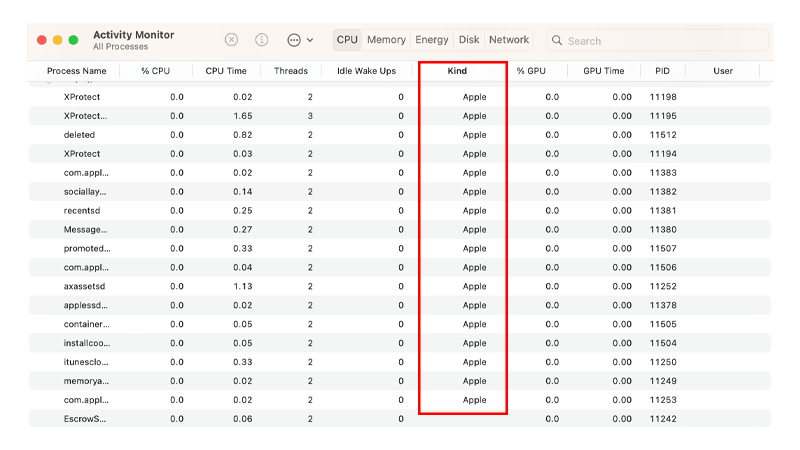
- If you see an Intel process, stop it from running.
Try playing sounds on your Mac afterward to check if the problem is solved.
9. Visit the Apple Store.
At this point, we should consider the possibility of hardware issues. The speakers on your Mac could be damaged or there are other components that failed.
Visit the nearest Apple Store in your area and have your Mac’s speakers checked.
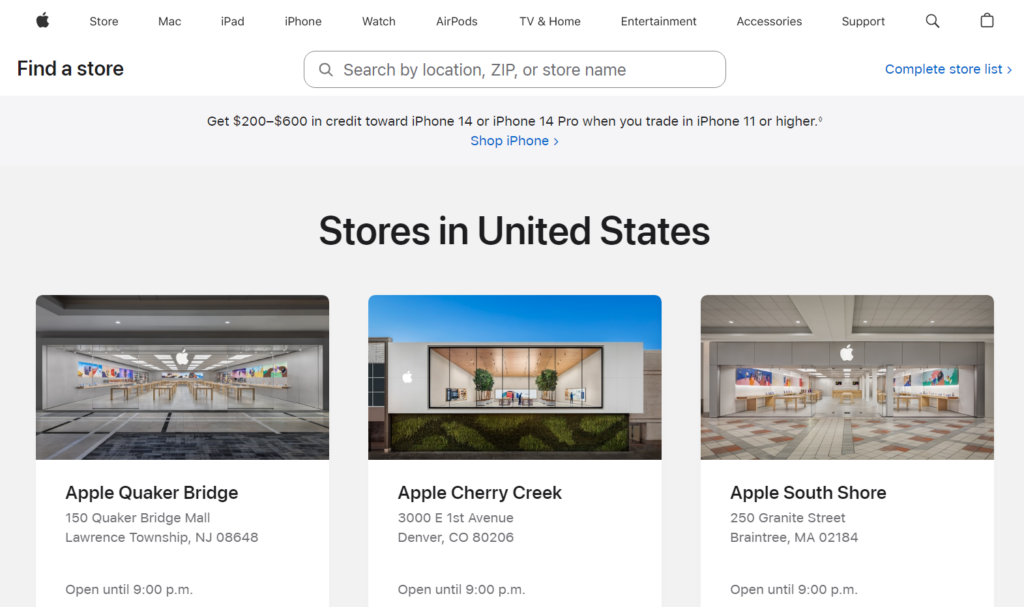
Before bringing your Mac, you can check online if it’s still covered by warranty so you know your options.
If you have just bought your Mac, you have up to 14 days to ask for a refund or replacement unit.
That brings us to the end of our guide for fixing cracking sounds on macOS Ventura. If you have questions, leave a comment below, and we’ll gladly help.





